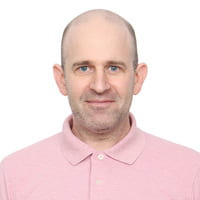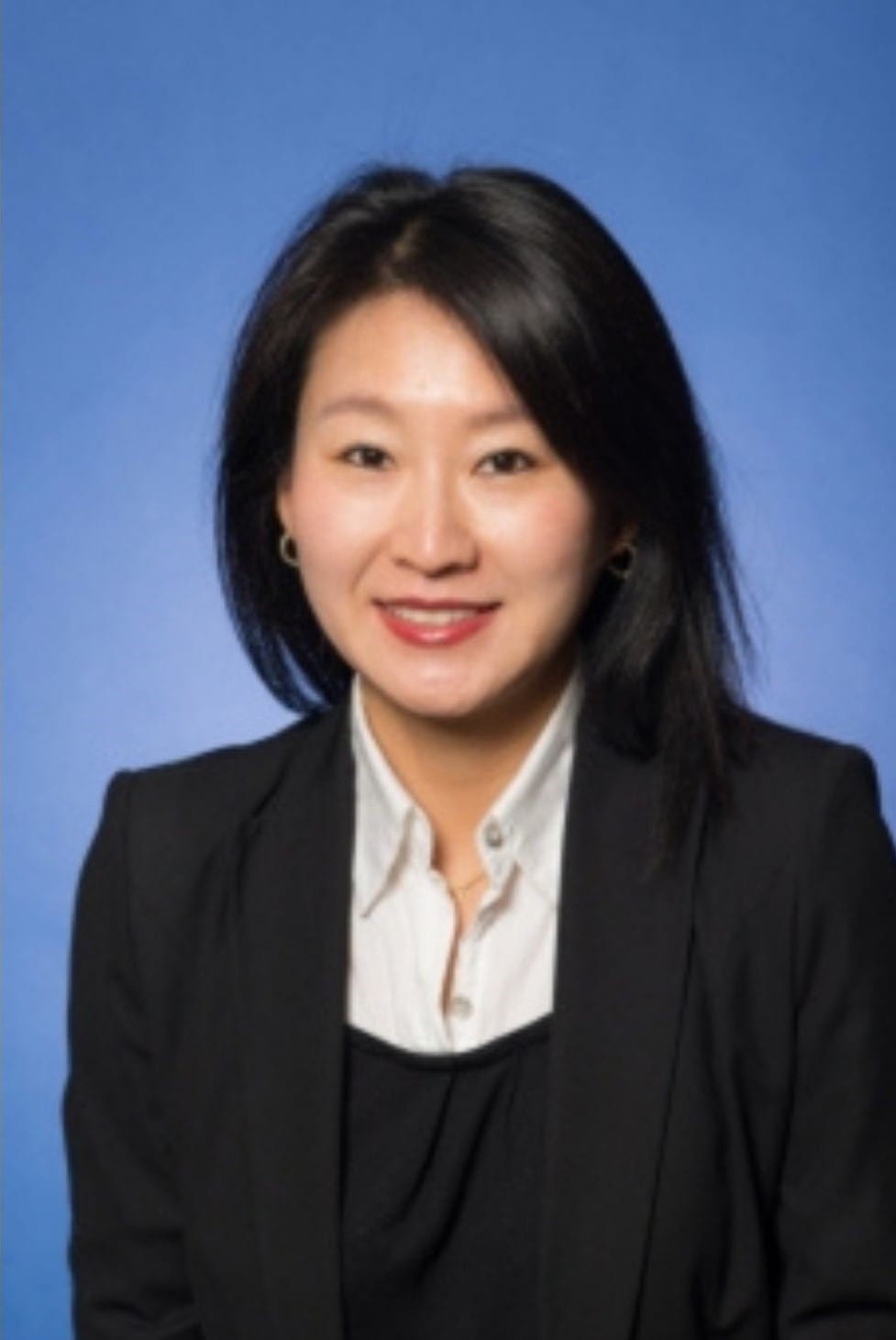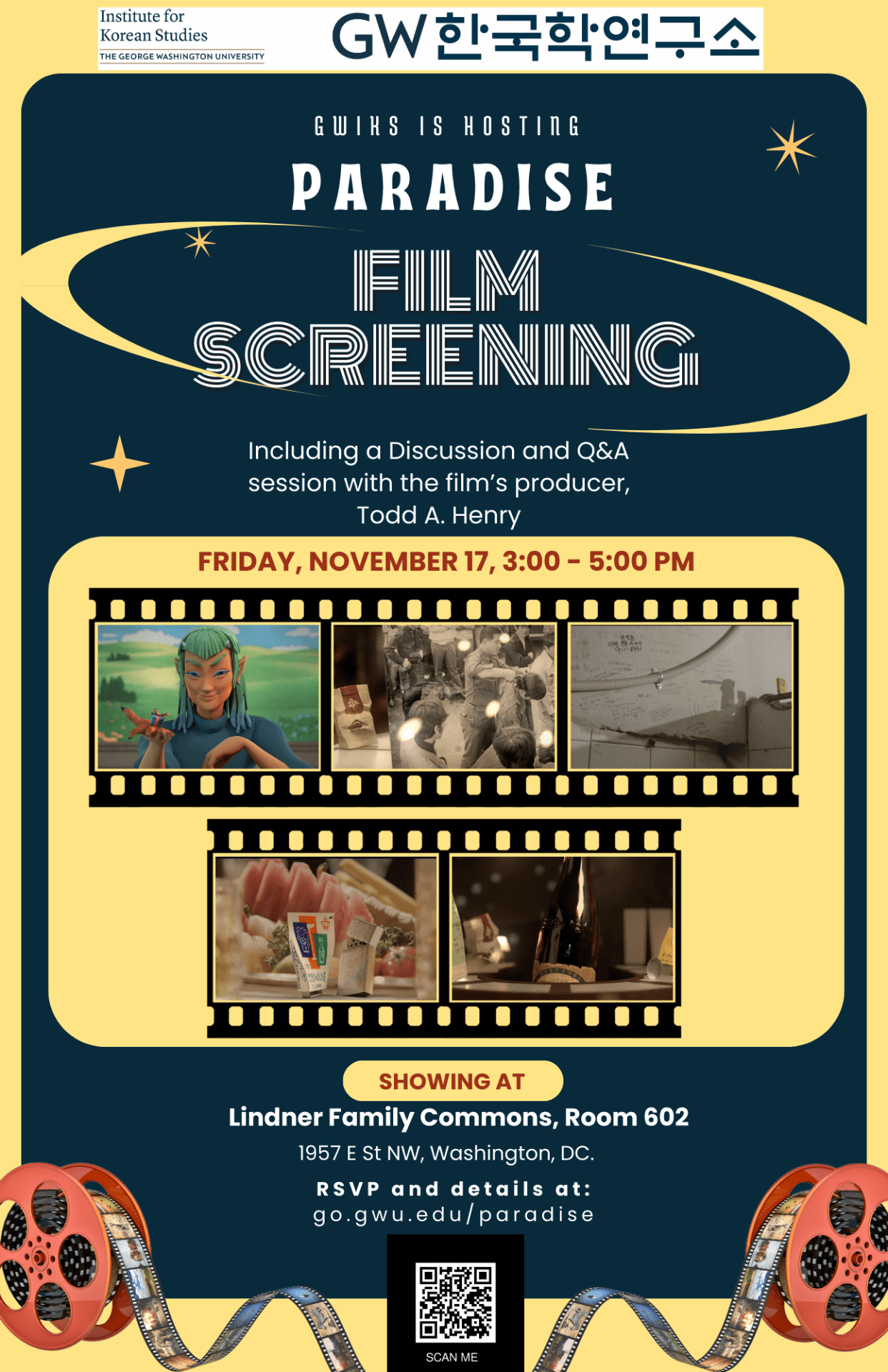Friday, November 17, 2023
3:00 PM – 5:00 PM EST
1957 E St NW, Washington, DC.
Lindner Family Commons (Room 602)
Virtual Option Now Also Available!
Film Synopsis and Event Overview
Paradise revisits South Korea’s era of authoritarian development (1970s-1980s) through the lens of queer livelihood. Despite the harsh realities of successive dictatorships, compulsory military service, and expectations of marriage and childbirth, six elderly gay men reveal how they converted second-run theaters and nearby bars into popular sites of erotic liberation, same-sex friendships, and romantic encounters. Using rare footage of Seoul’s only extant second-run movie house, visual archives, and historical animation, “Paradise” documents South Korea’s vibrant gay underground before the solidification of democracy and the introduction of the internet in the 1990s. Along the way, it follows the pain and joy of queer citizens, whose stories appear for the first time in this empowering film of self-discovery and community building.
The GW Institute for Korean Studies invites you to join us for a special screening of this important film. Prior to the screening of “Paradise”, Dr. Todd A. Henry, the producer of the film will give a lecture on the background of the film. The film will be followed by a Q&A session and discussion led by Dr. Henry and moderated by Dr. Jisoo M. Kim, Director of the GW Institute for Korean Studies.
Speaker

Todd A. Henry (Ph.D., UCLA, 2006; Associate Professor, UCSD, 2009- Present) is a specialist of modern Korea with a focus on the period of Japanese rule (1910-1945) and its postcolonial afterlives (1945-present). A social and cultural historian interested in global forces that (re)produce lived spaces, he also studies cross-border processes linking South Korea, North Korea, Japan, and the US in the creation of “Hot War” militarisms, the transpacific practice of medical sciences, and the embodied experiences of hetero-patriarchal capitalism. At UCSD, Dr. Henry founded the Transnational Korean Studies Program in 2013 and served as its inaugural director until 2018. He is the author of Assimilating Seoul: Japanese Rule and The Politics of Public Space in Colonial Korea, 1910-1945 (University of California Press, 2014; Korean translation 2020) and edited Queer Korea (Duke University Press, 2020; Korean translation 2023), among other publications. He is currently completing a book on the everyday politics of “hetero-authoritarianism” in post-Korean War South Korea. He has offered classroom, academic, and public lectures across the world, and is dedicated to establishing engaged collaborations with students, scholars, activists, artists, and other citizens seeking to make their own histories. A recent example is a documentary, “Paradise” (2023; directed by Hong Minki), which traces the untold story of gay sociality in 1970s and 1980s Seoul.
Moderator

Jisoo M. Kim is Korea Foundation Associate Professor of History, International Affairs, and East Asian Languages and Literatures at George Washington University. She is Founding Director of the GW Institute for Korean Studies (2017-Present) and Founding Co-Director of the East Asia National Resource Center (2018-Present). She also serves as Editor-in-Chief of the Journal of Korean Studies. She specializes in gender, sexuality, law, emotions, and affect in Korean history. She is the author of The Emotions of Justice: Gender, Status, and Legal Performance in Chosŏn Korea (University of Washington Press, 2016), which was awarded the 2017 James Palais Prize of the Association for Asian Studies. She is also the co-editor of The Great East Asian War and the Birth of the Korean Nation by JaHyun Kim Haboush (Columbia University Press, 2016). She is currently working on a book project tentatively entitled Criminalization of Intimacy: Adultery Law and the Making of Monogamous Marriage in Korea. She received her M.A., M.Phil., and Ph.D. in East Asian Languages and Cultures from Columbia University.

